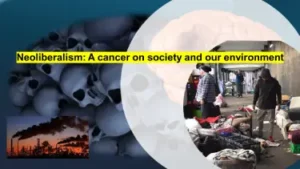Description: Advocating for Change
Explore the need for change in Australia’s political landscape. Understand advocacy strategies for a compassionate, people-friendly government using monetary sovereignty.
Introduction
Australia stands at a pivotal moment in its political evolution, grappling with the consequences of neoliberal policies that have shaped its society for decades. The need for a transformative approach is more urgent than ever, calling for concerted advocacy to usher in a more people-friendly, compassionate political landscape. This article delves into the heart of advocacy efforts, offering insights into the challenges and solutions necessary for meaningful change.
The Issue at Hand
The Neoliberal Impact on Australia

Neoliberal policies, which prioritize market-driven approaches and reduced government intervention, have profoundly impacted Australia’s social and economic fabric. Over the past 40 years, these policies have led to the privatization of public services, increased economic inequality, and a volatile job market. University graduates now struggle to find stable employment, and many Australians face precarious housing conditions and inadequate healthcare services.
Statistics Highlighting the Problem
– Economic Inequality: According to the Australian Bureau of Statistics, the wealthiest 20% of Australian households own 62% of the country’s wealth, while the bottom 20% own just 1%.
– Job Market Volatility: The underemployment rate in Australia stood at 8.5% in early 2023, highlighting the instability in job opportunities for many citizens.
– Housing Crisis: Data from the Australian Housing and Urban Research Institute (AHURI) shows that housing affordability has reached crisis levels, with many Australians spending more than 30% of their income on housing costs.
Intensifying the Issue
The Emotional and Social Toll
The implications of these policies extend beyond economic statistics, affecting the emotional and social well-being of Australians. The increasing divide between the wealthy and the poor has led to heightened social tensions and a sense of disenfranchisement among the population. Many Australians feel left behind by a system that prioritizes corporate interests over the needs of ordinary citizens.
Personal Stories
Meet Sam, a hypothetical 25-year-old university graduate from Sydney. After completing his degree in Environmental Science with high hopes of securing a meaningful job in his field, Sam found himself in a highly competitive job market. Despite applying for numerous positions, he was only able to secure part-time work as a barista and occasional short-term contracts related to his field, often with no benefits or job security.
Sam’s income is barely enough to cover his living expenses, including rent, groceries, and student loan repayments. He dreams of starting a family and owning a home someday, but these aspirations seem increasingly out of reach. The stress and uncertainty of his employment situation take a toll on his mental health, leaving him feeling disillusioned and frustrated.
Sam’s story is a stark reminder of the challenges faced by many young Australians in today’s job market. His experiences underscore the urgent need for policy changes that create stable, well-paying jobs and support young people as they transition from education to the workforce.
Advocating for Change
Grassroots Mobilization
Importance of Community Engagement
Grassroots mobilization is a powerful tool for driving political change. Engaging local communities in advocacy efforts ensures that the voices of ordinary Australians are heard and considered in policy decisions.
Example: The successful campaign against the Adani coal mine project showed the power of grassroots mobilization, with local communities and environmental groups coming together to protect the environment and advocate for sustainable development.
Techniques for Mobilization
– Local Meetings and Workshops: Organize community meetings to discuss issues and strategize collective actions.
– Petitions and Letter-Writing Campaigns: Mobilize community members to sign petitions and write letters to local representatives.
– Public Demonstrations: Use peaceful protests and rallies to draw attention to critical issues and show public support.
Policy Engagement
Influencing Policy Through Lobbying
Effective lobbying involves building relationships with policymakers and presenting evidence-based arguments to influence legislation. Advocacy groups must engage with government officials and take part in public consultations to shape policy decisions.
Success Story: The campaign for marriage equality in Australia is a prime example of successful lobbying, where advocacy groups worked tirelessly to influence policymakers and garner public support, leading to the legalization of same-sex marriage in 2017.
Public Consultations
Public consultations are an essential part of democratic governance, allowing citizens to provide input on policy proposals. Advocates should actively take part in these consultations to ensure that community needs and perspectives are considered in policymaking.
Media and Public Awareness
Role of Media in Advocacy
Media plays a crucial role in raising public awareness and shaping opinions. Effective use of traditional and social media can amplify advocacy messages and mobilize support for change.
Example: The use of social media by the School Strike for Climate movement has successfully galvanized global youth action against climate change, showing the impact of digital platforms in advocacy.
Creating Impactful Campaigns
To create impactful media campaigns, advocates should:
– Develop Clear, Compelling Messages: Craft messages that resonate with the target audience and highlight the urgency of the issue.
– Example: “A fair Australia starts with you. Join us in advocating for policies that ensure every citizen has access to quality housing, stable jobs, education, and healthcare.”
– Use Visuals and Storytelling: Leverage visuals and personal stories to humanize the issue and engage the audience emotionally.
– Example: Share the story of Sam, a young graduate struggling with underemployment, to illustrate the real-life impact of economic policies. Visuals could include photos or short videos of Sam’s daily life and challenges.
– Engage Influencers and Allies: Collaborate with influencers and allied organizations to broaden the campaign’s reach and impact.
– Example Influencers:
– Clementine Ford: A prominent Australian feminist writer and speaker.
– Craig Reucassel: An environmental activist and comedian known for his work on “War on Waste“.
– Yassmin Abdel-Magied: An engineer, social advocate, and author with a strong social media presence.
The Role of Monetary Sovereignty
Understanding Monetary Sovereignty
Australia’s monetary sovereignty, as a nation that issues its own currency, allows the federal government to fund essential services and investments without relying on taxes or borrowing from abroad. This concept is crucial in advocating for a compassionate political landscape.
Benefits of Leveraging Monetary Sovereignty
– Funding Public Services: By using monetary sovereignty, Australia can ensure adequate funding for healthcare, education, and social services, addressing the inequalities worsened by neoliberal policies.
– Economic Stability: Government spending can be directed towards job creation programs and infrastructure projects, offering stable employment opportunities, and boosting economic growth.
– Social Equity: Targeted spending on social programs can reduce poverty and ensure that all citizens have access to necessities, fostering a more inclusive society.
Practical Applications
– Healthcare: Implement universal healthcare initiatives to ensure all Australians receive prompt and adequate medical care.
– Education: Increase funding for public schools and universities, making education more accessible and affordable.
– Housing: Develop affordable housing projects to address the housing crisis and provide stable living conditions for all citizens.
Summary
The need for advocacy in transforming Australia’s political landscape is undeniable. Neoliberal policies have worsened economic inequality, job instability, and housing unaffordability, necessitating a concerted effort for change. Grassroots mobilization, effective policy engagement, and strategic use of media are essential strategies for advocating a more people-friendly, compassionate political system.
Leveraging Australia’s monetary sovereignty can play a pivotal role in funding these transformative initiatives. By actively taking part in advocacy efforts, Australians can drive significant political change and work towards a more fair and just society.
Engagement Question
How do you think grassroots movements can further influence Australia’s political landscape? Share your thoughts and experiences in the comments below!
Call to Action
Join the movement for change! Sign up for our newsletter to stay informed about advocacy opportunities, contact your local representatives, and explore our resources for effective advocacy strategies. Share this article with your contacts and on social media to spread the word.
References
1. Inequality in Australia 2023. https://povertyandinequality.acoss.org.au/wp-content/uploads/2023/09/Inequality-in-Australia-2023_Overview_print.pdf
2. Australian Bureau of Statistics. (2023). Labour Force, Australia. https://www.abs.gov.au/statistics/labour/employment-and-unemployment/labour-force-australia/latest-release
3. Australian Housing and Urban Research Institute. (2023). Housing Affordability in Australia. https://www.ahuri.edu.au/research/housing

